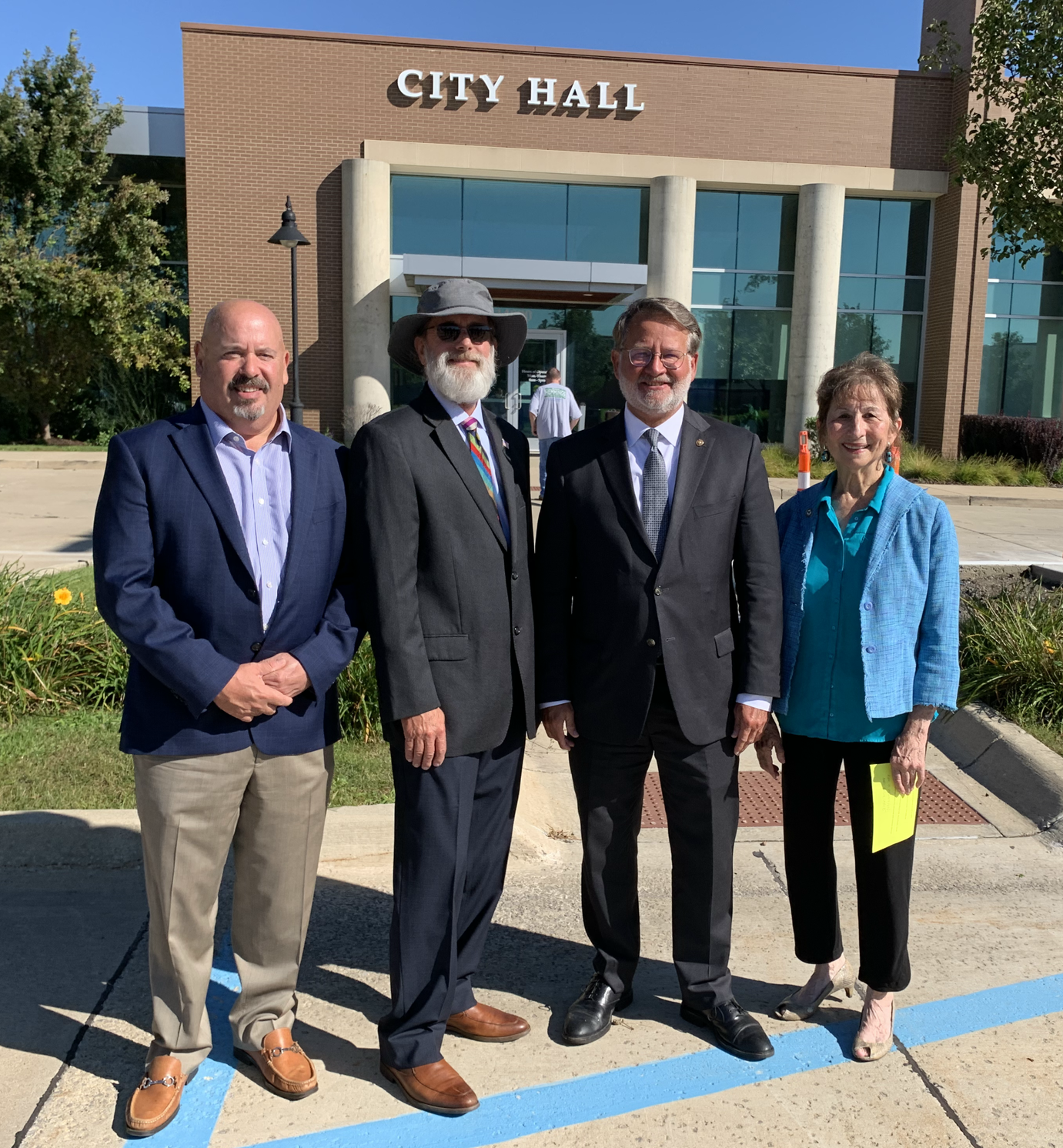PHOTOS: In Oak Park, Peters Highlights New Program that Will Help Michigan Communities Protect Against Severe Flooding and Rising Water Levels
After Securing $500 Million in Senate Passed Infrastructure Bill for Loan Program Created by His STORM Act, Peters Pressed House to Act and Send Legislation to President’s Desk
OAK PARK, MI – U.S. Senator Gary Peters (MI), Chairman of the Homeland Security and Governmental Affairs Committee, today toured Shepherd Park in Oak Park to see firsthand how recent flooding has impacted surrounding homes, the community, and the local economy. Peters highlighted $500 million in funding he secured in the Senate-passed infrastructure bill, which would be used to help states establish revolving loan programs for local governments to carry out mitigation projects that reduce natural disaster risk, including extreme flooding, shoreline erosion and rising water levels. Peters authored the Safeguarding Tomorrow through Ongoing Risk Mitigation (STORM) Act, which was signed into law earlier this year, to create this new loan program. Peters was joined by Oak Park Mayor Marian McClellen, Oakland County Water Resource Commissioner Jim Nash, and Birmingham Bloomfield Chamber of Commerce President Joe Bauman.
Click here for photos from today’s event: https://flic.kr/s/aHsmWzwkKj
“Today, we were able to see how severe storms and devastating floods continue to impact lives and livelihoods all across Michigan – including right here in Oak Park. It’s abundantly clear we must act now to ensure our nation’s infrastructure can withstand these natural disasters and protect our communities,” said Senator Peters. “The low-cost loan program I helped create – and the funding I recently secured for it in the Senate-passed infrastructure bill – will help communities in Michigan access the resources they need to build resiliently and mitigate the effects of natural disasters. I urge my colleagues in the House to pass this bill as soon as possible to ensure our state’s infrastructure is built to safeguard lives and livelihoods from worsening natural disasters.”
“I’m grateful to Senator Peters for joining us here in Oak Park and for his work to help local communities update our infrastructure so we can protect against natural disasters,” said Oak Park Mayor Marian McClellan. “Senator Peters’ work will not only help safeguard countless Michiganders – but ensure that local communities with limited resources do not have to burden residents with higher fees to pay for resiliency projects. We now need the House of Representatives to pass the bipartisan infrastructure bill as soon as possible so cities like ours can get the federal help we need to combat natural disasters.”
“Extreme flooding and weather continue to severely impact residents right here in Oak Park. It’s clear our communities need to upgrade our infrastructure to better handle these severe storms and protect residents from floods,” said Oakland County Water Resource Commissioner Jim Nash. “I am thankful to Senator Peters for not just creating a low-interest loan program to help do this, but also securing the funding needed to ensure Oakland County communities can invest in projects – like better storm water drainage. I am hopeful the House will pass the bipartisan infrastructure bill soon so we can access these funds and begin this important work.”
“Senator Peters has always stood strong with Michigan’s small businesses – and his STORM Act is just another example. In Oakland County, we have seen time and time again how flooding has greatly cost local business owners,” said Birmingham Bloomfield Chamber of Commerce President Joe Bauman. “Now that this funding has passed the Senate in the infrastructure package, we need the House to do the same so that local communities can help small business owners and their employees know their livelihoods are protected and their businesses can continue to thrive even when disaster strikes.”
Communities in Michigan – including Oak Park – are facing serious flooding, coastal erosion and high water level challenges that have destroyed homes, small businesses and beaches, and have even forced residents to relocate. Southeast Michigan recently faced yet another severe flooding event that tragically led to two deaths, damaged small businesses and thousands of homes, and devastated families. The loan program established by the STORM Act will allow local governments to access critical funds to help mitigate the impact of natural disasters in a more cost-effective way. Studies have shown that resilience and mitigation spending saves taxpayers an average of $6 for every $1 invested.
Unlike existing Federal Emergency Management Agency (FEMA) grants, the low-interest loans created by Peters’ STORM Act would allow local governments to invest in resiliency and mitigation projects that reduce the effects of shoreline erosion and rising and high water levels, along with other natural disasters. These loans would reach communities more quickly than FEMA’s traditional grants, and provide local communities with the capital necessary to invest in more resilient infrastructure.
To download high-resolution photos from the visit, click on the images below. Images are courtesy of Senator Peters’ Office.
###

